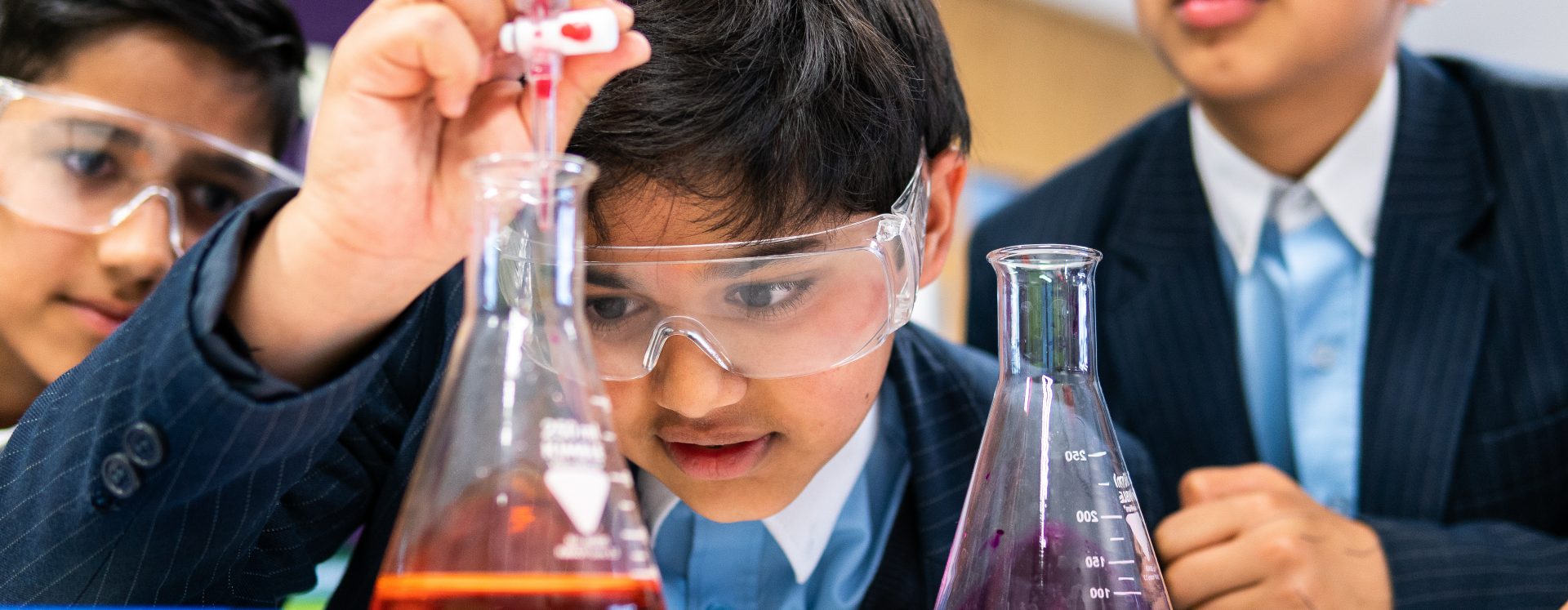Curriculum
The School’s curriculum is designed to foster thought, curiosity and a desire for learning in all pupils, regardless of their backgrounds, strengths and needs. The curriculum should be a gateway to opportunity and a knowledge-based vibrant community in the United Kingdom and beyond. It must also reflect national policy and priorities.
The School’s curriculum provides pupils with an introduction to the essential knowledge that they need to be educated citizens, and also helps to engender an appreciation of human creativity and achievement.
The curriculum provides an outline of core knowledge around which teachers can develop exciting and stimulating lessons to promote the development of pupils’ knowledge, understanding and skills as part of the wider school curriculum.
This policy sets out the curriculum that underpins teaching and learning at the School. The curriculum will serve the aims of the School and its community. This is defined through the School’s mission of educational excellence, character development and service to communities. In line with the Star Quality Standards, the curriculum actively promotes equality for all through both its content and delivery. Full details are contained in the Annual Equalities Statement.
We aim to ensure that all pupils have access to the curriculum and are not disadvantaged by any disabilities or special educational needs. Full details are contained in the SEND Information Report, Policy and Guidance .
Our curriculum serves the aims of Star Academies, the Multi-Academy Trust which manages the school:
• To transform the educational achievement of our young people.
• To elevate the life chances of young people in areas of social and economic deprivation – from all backgrounds – to help them succeed at the highest levels of education, employment and the professions.
• To lead a drive based on rigour and high expectations designed to improve standards.
• To mould pupils into active British citizens, with a sense of responsibility for their actions. To encourage pupils’ social participation within their community.
• To promote the development and nurturing of young leaders.
• To give pupils a practical and more successful understanding of their rights and responsibilities in society.
• To allow pupils to develop their individuality.
• To promote the physical and mental development of pupils.
• To empower pupils with the necessary skills and abilities to play a full and inclusive role within society, consistent and comfortable with their beliefs and principles.
• To fulfil Trust and statutory requirements.
• To support the mission, vision and values of the Trust and its establishments.
The Trust has overall responsibility for the effective operation of this policy and for ensuring compliance with the relevant statutory or Trust framework. The Trust has delegated day-to-day responsibility for operating the policy to Star Central, the Local Governing Body and the Principal of each secondary school.
The Local Governing Body and Senior Leadership Team at each Trust secondary school has a specific responsibility to ensure the fair application of this policy and all members of staff are responsible for supporting colleagues and ensuring its success.
The Board of Trustees will approve the framework for the School’s Curriculum Policy. Star Central will develop the Curriculum Policy and Model.
The Local Governing Body will ensure that:
• progress towards annual statutory targets is monitored;
• it contributes to decision making about the community elements of the curriculum;
• it provides leadership to shape the ‘character development’ and ‘service to communities’ elements of the curriculum;
• it provides feedback to the Board of Trustees and Star Central on the effectiveness of the curriculum.
The Principal will ensure that:
• they have an oversight of curriculum structure and delivery;
• all statutory elements of the curriculum, and those subjects which the School chooses to offer, have aims and objectives which reflect the aims of the Trust;
• the amount of time provided for teaching the core curriculum is in line with Trust policy;
• the procedures for assessment meet all legal requirements and pupils and their parents/carers receive information to show how much progress the pupils are making and what is required to help them improve.
The Senior Leader responsible for the Curriculum will ensure:
• they have an oversight of curriculum delivery;
• detailed and up-to-date schemes of learning are in place for the delivery of courses;
• schemes of learning are monitored and reviewed on a regular basis;
• levels of attainment and rates of progression are discussed with Directors of Learning/Middle Leaders on a regular basis and that actions are taken where necessary to improve these.
Directors of Learning/Middle Leaders will ensure that:
• long-term planning is in place for all courses;
• schemes of learning encourage progression that is in line with Trust standards;
• there is consistency in terms of curriculum delivery;
• courses taught are in line with the Trust’s recommended awarding bodies;
• where necessary an appropriate combination of qualifications or alternative qualifications can be offered which best suit the needs of learners;
• assessment is appropriate to the course and the pupils following particular courses;
• they keep the senior leaders informed of proposed changes to long-term plans;
• all relevant information/data is shared with the Data Team (this includes meeting deadlines related to exam entries etc);
• pupil performance data is reviewed on a regular basis to ensure that any necessary changes in terms of curriculum delivery are planned and carried out in a timely fashion;
• they share best practice with other colleagues in terms of curriculum design and delivery;
• they facilitate joint and collaborative lesson planning within the faculty;
• they oversee CPD needs with regard to curriculum planning and delivery within their area of responsibility.
Teaching and Teaching Support Staff will:
• ensure that the school curriculum is implemented in accordance with this policy;
• keep up to date with developments in their subjects;
• have access to, and be able to interpret, data on each pupil to inform the design of the curriculum in order that it best meets the needs of each cohort of pupils;
• share and exchange information about best practice amongst their colleagues in Trust schools and through external networks, resulting in a dynamic and relevant curriculum;
• participate in professional development, working with other teachers in the School and Trust to develop their skills in understanding the learning needs of their pupils and how best to address those needs and engage them.
Pupils will:
• be treated as partners in their learning;
• have their individual needs addressed, both within the school and extending beyond the classroom into the family and community through a curriculum which offers breadth, support and challenge;
• be given additional support if they start to fall behind in their learning, helping them get back on track quickly;
• receive co-ordinated support to enable them to make the appropriate choices.
Parents and carers will:
• be confident that their child is receiving a high quality education that is designed to meet their learning needs and which will equip them with the skills they need to thrive throughout their lives;
• be informed about the curriculum on offer and understand the rationale behind it.
In line with the Star Quality Standards, the School will ensure the curriculum:
• is primarily academic, broad and balanced in nature;
• emphasises learning in literacy, numeracy, languages, humanities and science;
• encourages high levels of participation in subjects that lead to the English Baccalaureate – at least 70% of the delivery time in each year is dedicated to E-Bacc subjects;
• prioritises academic achievement in literacy and numeracy for least able learners;
• provides highly positive, memorable experiences and rich opportunities for high quality learning;
• has a positive impact on all pupils’ behaviour and safety;
• contributes to pupils’ spiritual, moral, social and cultural development;
• adopts an inclusive, values-driven approach in line with the ethos of the School;
• fosters, in all, the fundamental British values of: democracy; the rule of law; freedom of religion; freedom of choice; freedom of thought; freedom of speech; freedom of association; tolerance and respect; fairness; liberty; social responsibility; equality for all.
• contributes to the Leadership Specialism of the School and helps every pupil access activities within each of Star’s five leadership foundations of sport, creativity, performing arts, enterprise and careers, charity and social action.
The curriculum will operate at three levels and will address its pupils’ academic, personal and social development.
The three individual elements of learning will each provide a different component to the education of every pupil. Intellectual, personal and social maturity will be the goal of these structured layers of learning at the School.
Element 1: Educational excellence
At the core of the School’s curriculum will be a specialist and obligatory menu for all pupils of academic subjects leading to the English Baccalaureate and including English, mathematics, sciences, languages, humanities, arts and technology.
The curriculum will be knowledge-rich and subject content will largely be driven by the National Curriculum and by specifications of national examinations.
The School believes that every pupil can benefit from an ambitious, rich and deep, academic curriculum that is supplemented by vocational courses to provide a breadth of experience. Therefore, Level 2 and Level 3 qualifications (GCSEs, A Levels and vocational courses) will be appropriate for all bar a very small number.
For these small number of pupils with special educational needs, the School will design a bespoke route which will be tailored to the specific needs and interests of the pupils concerned in any specific cohort. A personalised pathway for these pupils would be likely to include entry level and pre-GCSE courses. The School will, nevertheless, expect these pupils to participate fully in mainstream lessons, and to gain the full benefits of the school’s Leadership Specialism.
The school also believes that there should be opportunities for learning in performance and creative arts – including iMedia, music, drama and/or art. Furthermore, pupils should also have teaching related to technical learning – including subjects such as computer science, food technology and/or textiles.
Element 1 will be delivered mainly through the formal taught curriculum.
Element 2: Character development
Concurrently with the core academic curriculum, pupils will participate in a programme of leadership development organised around Star’s five leadership foundations of sport, creativity, performing arts, enterprise and careers, charity and social action.
The leadership specialism will help pupils develop key personal skills and aptitudes, including oral communication, personal effectiveness, entrepreneurship, self-actualisation, problem-solving and enhanced emotional intelligence. Through a focused and integrated approach to arts, culture and tradition, pupils will benefit from deep learning through direct experiences, visual displays, handling artefacts, live performances, cultural exchanges and outside visits. These extra- curricular dimensions of learning will be at the heart of the school.
Element 2 will mainly be delivered through extra-curricular activities and pupils’ independent studies in their own time.
Element 3: Service to communities
The curriculum for this element is linked to leadership foundation of Star Citizens and will be structured to help the development of social enterprise, volunteering and service to communities.
Pupils will acquire, through a range of individualised programmes, insights into social education and experiential community activities; with ‘hands-on’ and participative learning at the fore. For example, senior pupils may have the opportunity to undertake an extended placement working for a charity or for another community organisation. Senior pupils may undertake a ‘finishing’ element to acquaint them with the customs, morals, behaviours and expectations of contemporary adult and professional life.
As this element is based on pupil voluntary work, there will only be limited taught time in school. As well as the service learning and placements via the Citizenship curriculum, all pupils will aim to undertake 50 hours of voluntary work a year.
Communication, Mathematical and Scientific Skills
Communication skills at the School will be enhanced by English Language and Literature courses up to GCSE, and the provision of French, Urdu and Arabic up to GCSE.
Numerical and mathematical skills are a critical aspect of the curriculum. This will be provided through Mathematics up to GCSE level. Mathematical skills will also have a focus on the application of Mathematics in everyday life and functional skills as part of revisions to the new curricula. Numeracy will also be developed across the curriculum as a core skill that enhances employability and supports attainment. GCSE Mathematics will be delivered as a linear course, completed in Year 11. Further pure Mathematics will also be delivered as an optional course in Year 10 and 11.
Science will be taught up to GCSE level. At GCSE level, the Double Award Combined Science course will be completed by all learners. The most able students will complete single sciences in all three disciplines at GCSE Level. There will be an emphasis placed on greater depth of knowledge and understanding in Science, the History of Scientific Thought and how everyday science is applied. Aspects of the sex and relationship education will be offered through the Science curriculum. A small number of students will study entry level science.
Humanities, Faith and Relationships Education
The Humanities provision will underpin the School’s drive to develop exemplary citizens who hold an appreciative understanding of British history, promote fundamental British values and challenge all forms of discrimination and extremism.
At Key Stage 3, all learners will have separate specialist teaching of History, Religious Studies, Citizenship (Life Skills) and Geography. The teaching of History up to GCSE level will allow students to undertake an understanding of modern world History, with a specific focus on British History and culture over the last millennia.
PSHE (life skills) and the Active Citizenship curriculum at Key Stage 3 and beyond will include a focus on healthy body and healthy life; self-awareness; risks such as sexual exploitation, unsafe use of the internet and extremism; as well as learning on careers, money, industry and economics. The curriculum will also develop knowledge of the public institutions and services in England and abroad, and an understanding of different cultures and faiths. Students will be taught about parliament, about how laws are drafted and approved, about how the democratic institutions function and about the role of media and voluntary bodies.
Other areas, such as distinguishing right from wrong; respect for the law; tolerance for, and respect for the rights of others and their cultures and faiths; freedom of choice; freedom of association; freedom of thought; risks of religious and political extremism; accepting personal responsibility within their communities and the concept of ‘civic society’ will be delivered through Citizenship lessons, as well as the School’s PSHE (life skills), assembly and ‘Leadership’ specialism. Aspects of Sex and Relationship Education (including awareness of issues such as female genital mutilation, forced marriages and sexual exploitation) will also be delivered through the PSHE (life skills) and Active Citizenship curriculum. Read our Relationship, Sex and Health Education Policy here.
At GCSE, all students will study three subjects related to Humanities and Faith education. All students will complete a GCSE in Citizenship and a GCSE in Religious Studies. All students will also study either GCSE History or GCSE Geography.
Religious Education up to GCSE level will include an understanding of the beliefs and practices of major world faiths, such as Islam, Judaism, Christianity, Buddhism and Hinduism, as well as understanding the nature of faith itself and respecting those of all faiths and none.
Technical and Creative Education
Aesthetic and creative education will be provided through Art and Music at Key Stage 3. Art & Design technology lessons will allow learners to explore and develop artistic learning and use Computer Aided Design and Computer Aided Manufacture (CADCAM) to explore design and technological learning through a study of materials. At Key Stage 4, students will also be able to study a GCSE in Art & Design or design technology.
Students at KS3 will also study Computer Science, with more able learners being able to progress to studying GCSE Computer Science at KS4. Alternatively, students will study a Cambridge National qualification in Creative iMedia as part of their creative and technical curriculum at KS4.
Physical Development
The physical well-being of students will be encouraged through the provision of Physical Education for all students. Students will also develop an understanding of issues such as drugs, exercise and good nutrition. At Key Stage 3, students will have two hours of Physical Education each week. This will be complemented by an annual Sports Day and enrichment activities throughout relating to competitive sports. A Cambridge National qualification of Sport Studies will also be delivered as an optional course. Sports Leadership will be delivered for all learners across the School. This will include partnerships with other voluntary and private sector organisations, including the Year 9 Sports’ Leadership programme and the Duke of Edinburgh Award for students in Year 10 and beyond.
The School believes that the Leadership specialism will extend and enrich the central core of the school curriculum, thus enabling pupils to deepen their knowledge and skills through application and enquiry. They will create opportunities from which pupils will acquire ‘employability,’ and make contacts which will increase their chances of progressing to work or on to Further or Higher Education.
The School’s Leadership offer is organised around Star’s five leadership foundations and designed to instil the three interdependent Leadership Virtues of Performance Leadership, Moral Leadership and Civic Leadership set out in Star’s R-18 Leadership framework.
Curriculum time will be allocated to the Leadership Specialism in a number of ways:
• through timetabled periods;
• discretely in half-termly Leadership Days;
• through cross-curricular working;
• through enrichment organised around Star’s five leadership foundations of sport, creativity, performing arts, enterprise and careers, charity and social action.
The Leadership Days will:
• offer pupils the opportunity to apply their developing leadership skills in real and simulated situations;
• expose pupils to new ways of considering leadership through guest speakers, lecturers and facilitators;
• offer pupils the opportunity to deepen their knowledge of leadership through research and enquiry;
• develop further pupils skills in debating and public speaking through competitions and showcases;
• allow pupils to develop a leadership portfolio.
Leadership development will also be a focus in every faculty and subject:
• Every faculty in the School, and every subject offered, will make a contribution to the achievement of the Star Leadership Virtues.
• A key feature of the delivery of the GCSE core subjects will be the application of their knowledge and understanding to the specialism where the connections are meaningful.
• Relevant qualifications in leadership, which have currency and recognition with higher education and employers, will also be utilised to support progression.
The School will have a structured careers programme published on the school website. There will be an identified senior leader with oversight for the programme. Careers guidance will meet the Gatsby Benchmarks in line with the Careers and Enterprise Policy. Careers education will be provided in four major strands:
In the first strand, the School will facilitate the delivery of impartial information, advice and guidance. This will allow all pupils to receive advice and guidance on career progression at regular intervals throughout the year.
The second strand is the provision of careers guidance and development of work-related skills in the PSHE curriculum.
The third strand of the careers guidance comes from Star’s five leadership foundations and provision of community service, work experience opportunities, visits from employers and careers fairs for pupils throughout their time at the school. This will include at least one meaningful encounter with an employer each year, starting in Year 7.
The fourth strand is the explicit linkage of the taught curriculum to careers with an emphasis on Science, Technology, Engineering and Mathematics (STEM) to raise aspirations.
In addition to the careers guidance and work-related experiences, enterprise skills will also be developed through the delivery of ‘Leadership Days’ for all pupils.
The School will monitor the effectiveness of their careers programme by:
• taking annual feedback from pupils, parents, teachers and employers;
• maintaining and tracking each pupil’s records of careers guidance and agreed decisions. These records will be shared with pupils to support their career development;
• maintaining accurate data for each pupil on their education, training or employment destinations for at least 3 years after they leave school.
The School has a firm commitment that learning in each curriculum area should not just be about delivering a Scheme of Work or programme of study to achieve outstanding examination results, but should also be about pupils enjoying learning and developing creativity within that subject.
Each curriculum area will be expected to develop enrichment activities for learners and to signpost these activities.
Enrichment within curriculum areas should be aimed at:
• increasing enjoyment within that curriculum area;
• providing challenge and developing independent learning in gifted and talented pupils in the curriculum area;
• developing the profile of the curriculum area or particular skills and themes within that area;
• linking the curriculum area to the School’s Leadership specialism and providing access to activities within each of Star’s five leadership foundations of sport, creativity, performing arts, enterprise and careers, charity and social action.
Each curriculum area will develop their enrichment activity in the coming academic year. Enrichment will include:
• development of clubs linked to one or more curriculum areas;
• development of faculty-based trips and outdoor learning opportunities;
• identifying external facilitators to engage pupils;
• celebrating a particular ‘National Day’ or ‘World Week’ related to an issue of relevance to the curriculum area and the school’s Leadership specialism.
The enrichment activities will be delivered during:
• weekday evening sessions on particular days of the week when intervention sessions are not usually scheduled;
• lessons to celebrate a particular ‘National Day’ or ‘ World Week’ related to an issue of relevance to the curriculum area;
• weekends and early mornings/evenings where appropriate.
Key Stage 3
For most subjects, the School will operate a two-year Key Stage 3 and a cycle of 28 periods per week. All of the content for Key Stage 3 will be delivered within two years.
Key Stage 3 will:
• Be focused on deep body of knowledge (what they know) & diverse skills (what they can do) to succeed.
• Involve teaching a coherent, sequenced & ambitious scheme of work for each subject.
Include enrichment activities enhance learning beyond the classroom.
• Allow for an ambitious Key Stage 4, which has real depth (increasing complexity and rigour) and breadth (coverage of the full extent of the curriculum).
Some subjects have a three-year Key Stage 3.
• All students will continue their learning in creativity (including Art, music and design technology), until the end of Year 9.
• A course in Physical Education is completed by all at the end of Year 9.
Pupils will be offered extra time for English and Mathematics where they are performing below nationally expected levels. The focus is to support pupils with literacy and numeracy as soon as they join the school. In particular, there will be a strong emphasis on reading and expanding vocabulary.
The leadership specialism will be delivered through learning in each subject area, discrete days when the timetable is collapsed and projects are completed and activities within each of Star’s five leadership foundations of sport, creativity, performing arts, enterprise and careers, charity and social action.
Subjects Available at Key Stage 3
| English | Mathematics | Science | PE |
| Geography | History | RS | PSHCE |
| Arabic | French | Urdu | Art |
| Computer Science | Design Technology | Music |
Key Stage 4
For some subjects, the School will operate a three-year Key Stage 4 and a cycle of 28 periods per week.
Pupils will make their GCSE choices towards the end of Year 8. Across Years 9, 10 and 11, almost all pupils will follow a combination of subjects which will enable them to achieve the English Baccalaureate. They will sit GCSEs across Years 10 and 11. Learners will also study vocational subjects in across Year 9, Year 10 and Year 11 to contribute to a deep and rich curriculum experience.
Key Stage 4 will:
• Provide real ambition, depth, complexity and rigour in each subject.
• Emphasise extensive breadth in each curriculum area, to avoid ‘teaching to the test’.
• Include time dedicated to forging links between topics and themes, applying knowledge to increasingly complex settings and developing skills through an iterative process and refinement.
Not every subject will be delivered through a three-year Key Stage 4.
• For students who are ready, a small number of qualifications are delivered at the end of Year 10.
• A GCSE in Computer Science is concluded in Year 10.
• A GCSE in Religious Studies and Citizenship are also completed in Year 10.
Pupils will be offered extra time for English and Mathematics where they are performing below nationally expected levels. The focus is to ensure that every pupil secures a ‘Strong’ or ‘Basic’ Pass in English and Mathematics.
A very small number of pupils will undertake an alternative pathway. This will be a targeted pathway which will ensure SEN pupils, including those supported with an EHC Plan and those newly arrived, are supported in their learning to ensure they make the rapid progress. Pupils will complete nationally and industry recognised awards and qualifications, developing a personalised portfolio to include GCSE, approved high value vocational qualifications and Entry Level and pre-GCSE courses to ensure they are meaningful for pupils and count in the school performance measures.
The leadership specialism will be delivered through learning in each subject area, discrete days when the timetable is collapsed and projects are completed and activities within each of Star’s five leadership foundations of sport, creativity, performing arts, enterprise and careers, charity and social action.
Courses Available at Key Stage 4
| Subject | Level | Exam Board |
| English Language | GCSE | AQA |
| English Literature | GCSE | AQA |
| Mathematics | GCSE | Edexcel |
| Combined Science – Trilogy | GCSE | AQA / Edexcel (Year 9) |
| Biology | GCSE | AQA / Edexcel (Year 9) |
| Chemistry | GCSE | AQA / Edexcel (Year 9) |
| Entry Level Science | Entry Level 1/2 | AQA |
| Physics | GCSE | AQA / Edexcel (Year 9) |
| History | GCSE | AQA |
| Geography | GCSE | AQA |
| Religious Studies | GCSE | AQA |
| Citizenship | GCSE | AQA |
| Arabic | GCSE | Edexcel |
| French | GCSE | AQA |
| Urdu | GCSE | AQA |
| Computer Science | GCSE | OCR |
| Creative iMedia | Cambridge National Level 1/2 | OCR |
| Business | GCSE | Edexcel |
| Fine Art | GCSE | AQA |
| Design & Technology | GCSE | Eduqas |
| Sport Studies | Cambridge National Level 1/2 | OCR |
| Further Maths | Level 2 Certificate | AQA |
Withdrawal from curriculum
The school curriculum is designed to provide broad and balanced, knowledge-rich and deep leadership experience. The School believes that it is important that pupils participate in all aspects of the formal and informal curriculum.
Parents and carers may ask that a pupil should be wholly or partly withdrawn from Religious Education. Parents wishing to do so should contact the Principal to discuss this request as the School remains responsible for supervision and for ensuring that the request does not impact on a child’s attendance at school. As all subjects within the curriculum contribute to developing pupils spiritually, morally, socially and culturally there will be occasions when spontaneous enquiries made by pupils on religious matters arise in other areas of the curriculum. Circumstances will vary, but responses to such enquiries are unlikely to constitute Religious Education within the meaning of the legislation and a parent would not be able to insist on a child being withdrawn every time issues relating to religion and spiritual values were raised.
The 1996 Education Act (Section 405) gives parents the right to withdraw their child from all or any part of the SRE programme other than those elements in the Science curriculum. Any parents who may be considering the exercise of this right should first make an appointment with the Senior Leader responsible for pastoral support to discuss what such a decision may involve.
Organisation of learning
The organisation of learning and the curriculum will be structured around a series of faculties. Each faculty will have responsibility for delivering a range of subject areas and will ensure that the quality of learning reaches the highest standards.
Formal assessments of learning are conducted according to our Assessment, Recording and Reporting Policy and targets are shared with pupils and their parents regularly.
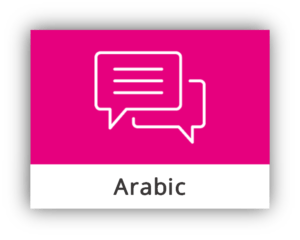 |
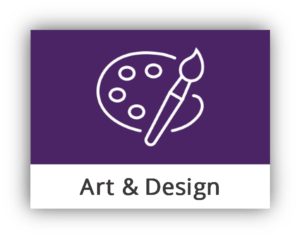 |
 |
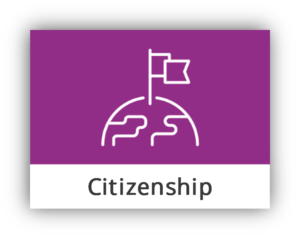 |
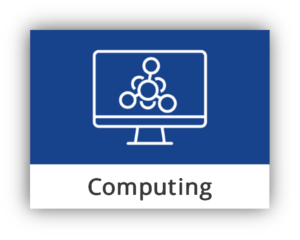 |
 |
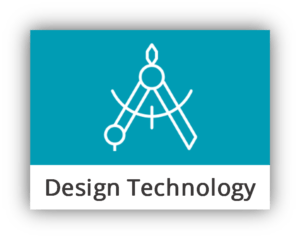 |
|
 |
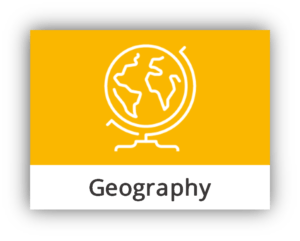 |
 |
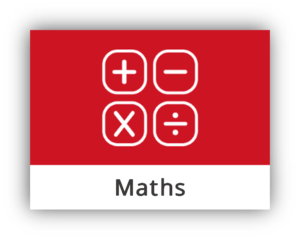 |
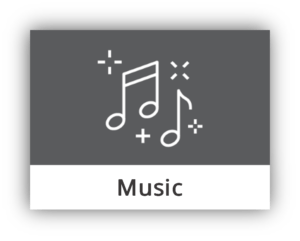 |
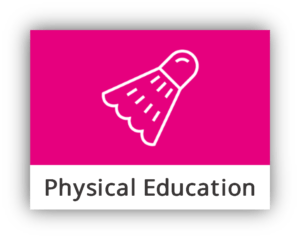 |
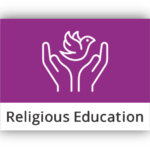 |
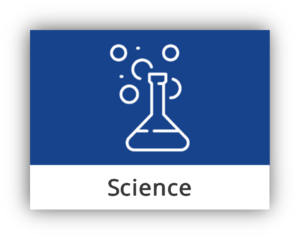 |
 |

